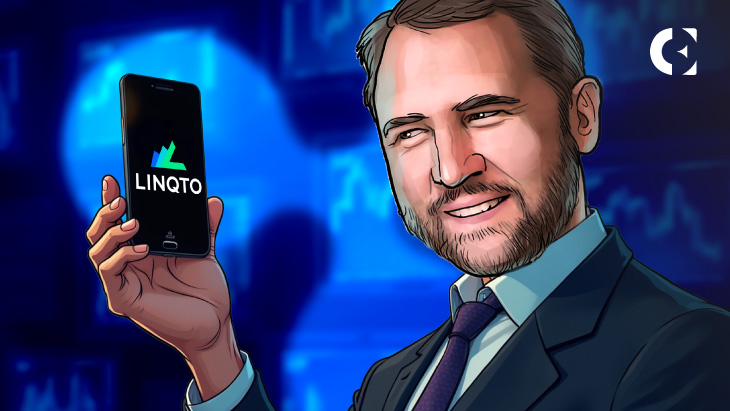- Linqto’s 4.7 million Ripple shares were acquired solely from other shareholders and not directly from Ripple
- Garlinghouse clarified that Ripple has no business relationship with Linqto, and it never participated in Ripple’s funding rounds
- Linqto marked up Ripple shares by 60%, ignoring SEC rules that limit markups to 10% and is now under federal investigation
Ripple’s CEO, Brad Garlinghouse, explains that Linqto’s 4.7 million Ripple shares were acquired solely from other shareholders and not directly from Ripple. He clarified that Ripple has no business relationship with Linqto, and it never participated in Ripple’s funding rounds.
Additionally, Garlinghouse mentioned that Ripple stopped approving Linqto-related share purchases in late 2024 amid growing internal concern.
Linqto marketed itself as a way for retail investors to access private startups and pre-IPO equity, including Ripple, but now the company is in trouble and facing federal investigations. This is the main reason why Garlinghouse distanced Ripple from the turmoil surrounding Linqto.
It’s reported that Linqto marked up Ripple shares by 60%, ignoring SEC (Securities and Exchange Commission) rules that limit markups to 10%, thereby earning millions. It was revealed that over 11,000 users used SPVs (special purpose vehicles), which were supposedly set up to hold Ripple shares.
However, many investors may never legally own the shares since they were sold via SPVs that might not have been properly structured.
The SEC and DOJ (Department of Justice) are now investigating Linqto, and the company is reportedly nearing bankruptcy, with users potentially locked out.
Potential impact on Ripple
This turn of events may have some unwanted effects for Ripple and its investors. John Deaton, a lawyer who is an XRP advocate and investor, cautions that if Linqto’s refund plan only returns the initial principal and not gains, investors could be unfairly shortchanged.
Ripple now must walk a fine line, and Garlinghouse’s comments are a good way for the company to distance itself from unauthorized secondary sales while maintaining investor trust.
Even before those comments, Ripple’s Chief Technology Officer, David Schwartz, said: “You don’t own the shares directly, but you own a portion of a legal entity that owns the shares.”
As expected, regulatory clarity came into focus as some see this as a wake-up call, while others argue reforms are essential to safely open private markets to retail investors.
The Linqto fiasco does serve as a cautionary tale that the secondary private investments carry risks like the lack of regulatory oversight, unclear SPV structures, and unreliable counterparty assurance.
Disclaimer: The information presented in this article is for informational and educational purposes only. The article does not constitute financial advice or advice of any kind. Coin Edition is not responsible for any losses incurred as a result of the utilization of content, products, or services mentioned. Readers are advised to exercise caution before taking any action related to the company.









